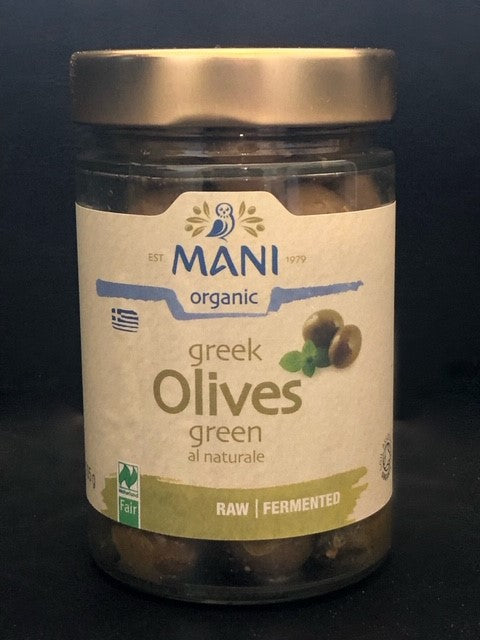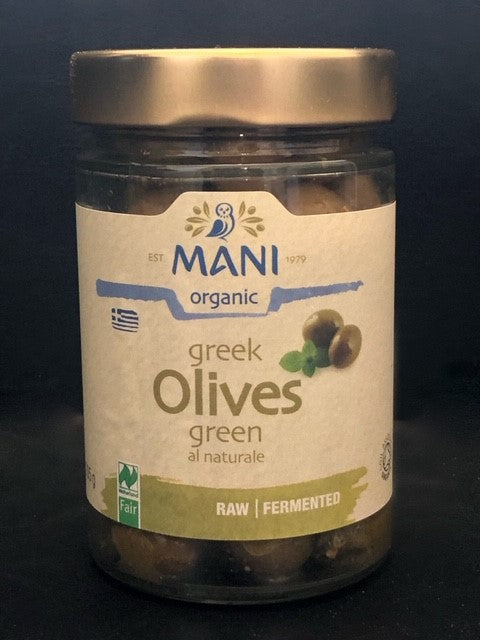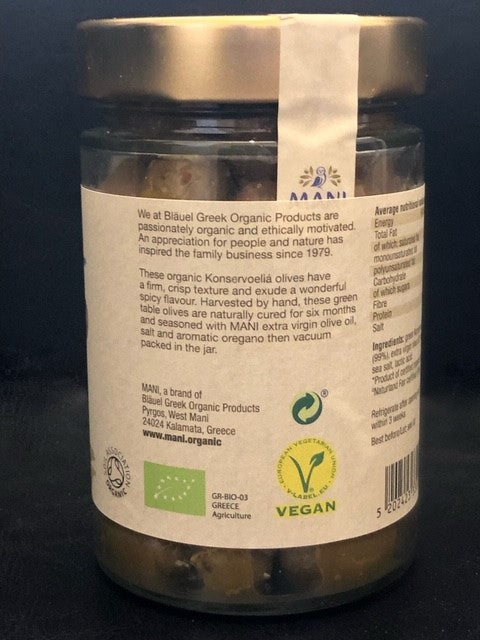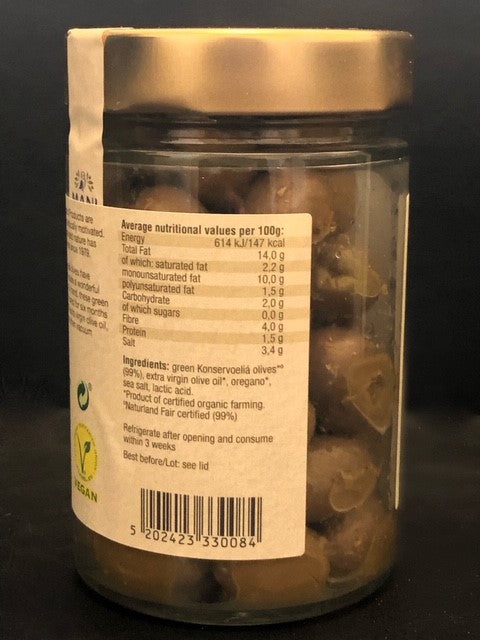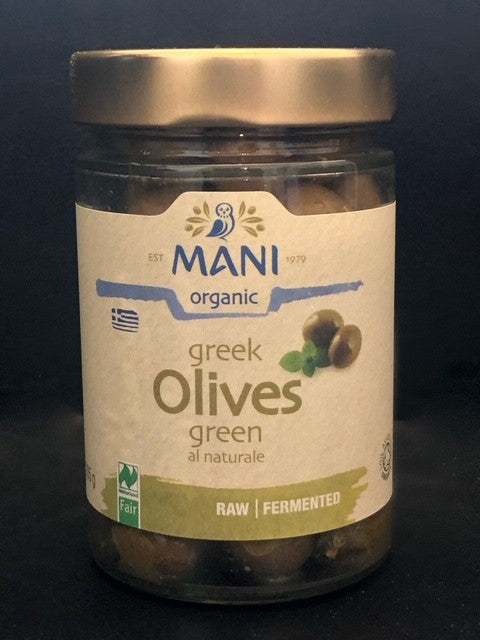
Ripened on the Tree - Traditionally Fermented - Organic
MANI table olives are carefully harvested, de-bittered (following the natural, traditional method of curing in sea salt brine) and carefully preserved and processed with no additives whatsoever.
They are suitable for vegetarians and vegans and the olives meet the criteria for a raw diet.
Easy to recognize, tree-ripened Kalamata olives are brownish-purple in colour and their flesh is juicy and mild.
In comparison, the solid flesh of organic green Konservolia table olives also known as Amfissa olives impress with their wonderful spicy flavour.
The olives are marinated in extra virgin olive oil and oregano then vacuum packed.
MANI olives add a Mediterranean touch to starters, salads and sauces but are also delicious on their own as a savoury snack or the perfect accompaniment to a glass of wine.
Naturland Fair Certified

Details Click to see more
MANI olives are largely hand-picked and sorted immediately after harvest again by hand for quality and size.
They are then placed in brine, in order to remove their natural bitterness, the brine liquid is refreshed regularly. The right de-bittering process is the secret of the distinctive taste of MANI olives.
Afterwards, the olives are processed into the various olive products in the traditional way.
Products with culture: Rich agricultural landscape + Greek joy for life = extraordinary flavour
The fine organic MANI olives are carefully prepared from pure natural products using traditional methods.
The ideal growing conditions of the Mani region in Greece are for olives what the terroir is for wine, resulting in a unique taste and quality typical of products from this area.
The olive tree symbolizes peace and prosperity. Greek olive tree culture can be seen in traditional olive cultivation. With delicate, artisanal processing this tradition finds its highest expression in Greek food culture, made of togetherness and joy. This same joy, appreciation and care go into all the MANI products and can be tasted in every bite. Gourmets and raw-foodies can enjoy the Mani al naturale olives.
MANI olives add a Mediterranean touch to starters, salads and sauces but are also delicious on their own as a savoury snack or the perfect accompaniment to a glass of wine.
Processing
In November and December with painstaking, careful craftsmanship and with simple hand-portable mechanical tools, the olives are harvested. The ripeness of the fruit is critical: not too green, nor too ripe experience shows that the fruit should ideally be picked when its colour is between yellowish-green and light purple: that is the right moment to pick them. At this stage aromas, polyphenols and oil content are optimal. Polyphenols are plant compounds that, among other things, affect the colour and taste, protect the oil and as antioxidants they are thought to strengthen the human cells in the body.
Strict selection methods guarantee the best raw materials for producing premium quality olives.
Cultivation Of Olives
The Mani region in Greece offers the best conditions for olive cultivation: a combination of high light intensity and duration of sunshine, a few hours of rain and stone and mineral rich mountain soil near the sea.
Here the Koroneiki olive variety thrives, producing some of the best olives in the world. The cultivation and management of the olive trees is done following organic principles. This means, among other things, that no chemical fertilisers and pesticides are used, thus safeguarding biodiversity.
Pests are controlled through biological methods. In the olive groves, under the trees there is a natural cover crop of grasses, legumes and weeds to keep the soil protected and fertile. Additional irrigation is not necessary. Organic farming requires intensive care and a lot of hard work, but it is a system which protects the soil and water. We believe that a healthy environment is reflected in the taste of the products it produces.
Another feature of the special cultivation of the Mani olive trees is the severe pruning, which contributes to the unique quality of the olives. Once a year the trees are very heavily pruned. In contrast to the usual oil yield of about 5 to 15 litres per tree, the smaller Koroneiki olive tree in the Mani only produces 1 to 3 litres of pure green gold. Here the focus is definitely on quality not quantity. The second star of the area is the famous Kalamata table olive. Kalamata olives have a slightly thicker skin and a firmer flesh than other olives, so they are well suited to transportation and processing even when fully ripe. This allows the farmers to wait for them to reach the right stage of ripeness on the tree, and then picking by hand selecting them one by one.
Tree ripened olives are quite a rare luxury to find on the market. Kalamata olives are characterised by a ripe fruit with a rich flavour, crunchy texture and plenty of beneficial nutritional components.
Organic & Fair
As part of this certification seven key principles are followed:
- social responsibility
- ethical & respectful trade relations
- fair prices
- regional supply of raw materials
- collaborative quality assurance
- community involvement
- corporate strategy and transparency
Naturland Fair guarantees fair conditions along the entire value chain, from farmers to the processor to the consumers, who are increasingly demanding an ethical origin for the products they buy.


